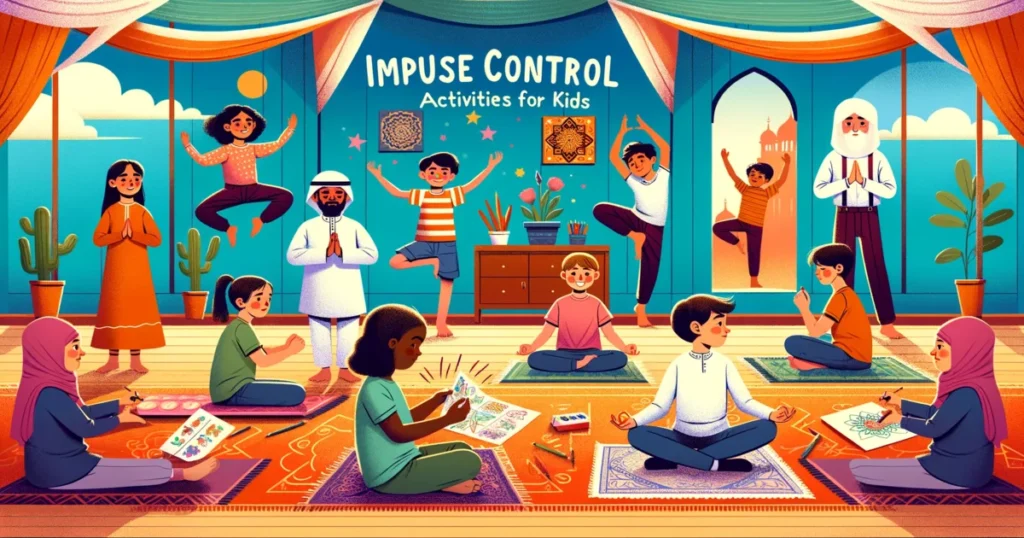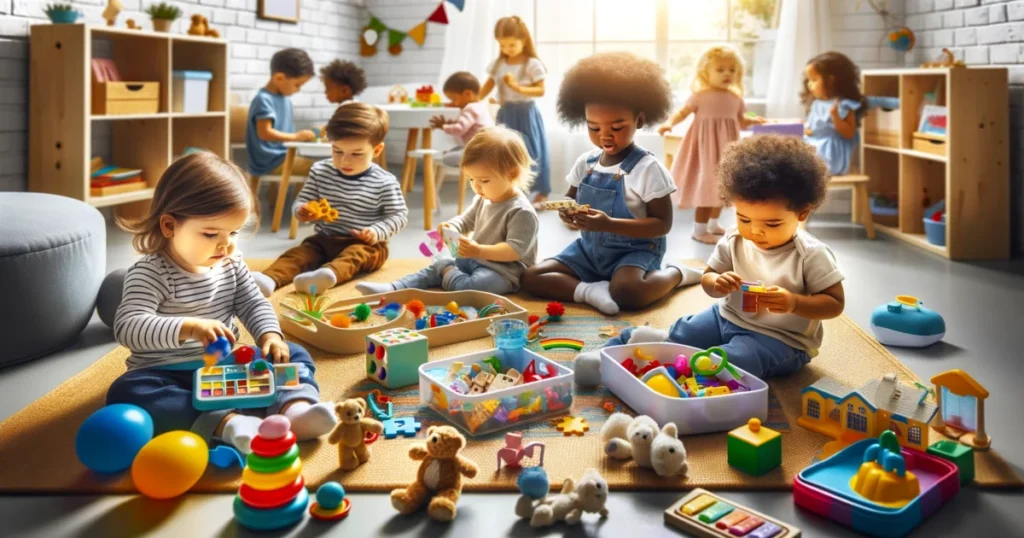Introduction about Child Behavioral Problems:
Are you facing Child Behavioral Problems? Let’s talk about how to help kids behave better. This article is like a helping hand for moms, dads, and anyone taking care of kids. We’ll share simple tips from experts that you can use every day to make things better at home.

Knowing What Starts the Trouble:
Think of yourself as a kind detective trying to figure out why your child might be having a hard time. It’s important to spot what makes a child upset or act in ways we wish they wouldn’t. Just like a detective looks for clues, you can look for hints in your child’s day. Maybe they get grumpy when it’s too noisy, or they don’t like surprises.
Tip: Keep a little notebook or a note on your phone about when your child gets upset and what was happening around that time. This can help you see a pattern of child behavioral problems, like maybe they’re always having a hard time right before lunch. This tells you the “why” behind the tough behavior, and knowing this can help you both.
Talking About Feelings:
Helping kids understand their feelings is like teaching them a new game. Once they know the rules, they can play much better. If they can say, “I’m mad” or “I’m sad,” they won’t have to stomp or yell to show it.
Tip: When your child is calm, chat about feelings. You can use simple words to talk about big feelings. Make it fun by drawing faces together that show different emotions. Then, when things get tough, they can use their words instead of getting upset. It’s like having a secret code for feelings.
Same Rules All the Time:
Kids like to know what to expect. It makes them feel safe, like knowing there will always be a streetlight on the corner. When they know the rules are always the same, they feel more relaxed and sure about what they should do.
Tip: Sit down with your child and make a list of family rules. Simple ones, like “We use kind words” or “We clean up our toys.” Hang it up where they can see it. This way, everyone knows what’s expected, and there’s less confusion and more doing things right.
Cheering Good Behavior:
Notice when your child does something you like, and shine a big happy light on it. It’s like giving them a thumbs-up. This makes them feel proud and want to do it again.
Tip: When you see your child doing something good, tell them right then what they did that you liked. Say, “I saw you give your brother the toy when he was sad. That was very kind!” It helps them understand exactly what they did that was so good.
Not Too Much TV or Games:
Just like we can’t live on only ice cream, kids can’t grow their best on screens alone. They need to play and run and pretend. It’s all about balance.
Tip: Decide together on times when screens are off-limits, like during meals or before bedtime. Instead, you could play a game, take a walk, or make something together. This helps your child learn to enjoy lots of different activities, not just screens.
Eating Right:
The food kids eat can affect how they feel and act. It’s like putting the right kind of gas in a car. Good food can help them run smoother and feel happier.
Tip: Invite your child to cook with you. Make a game of choosing foods with different colors, like a red apple or green spinach. This can make eating healthy fun and something they want to do.
Bedtime Routines effect on child behavioral problems:
Sleep helps your child’s mood reset. It’s like plugging in a phone so it’s ready to use in the morning. When kids sleep enough, they usually have better days.
Tip: Create a calm bedtime routine that might include reading a favorite book or telling a story. This signals to your child that it’s time to slow down and get ready for sleep.
Staying Calm During Fits:
Sometimes kids can lose control and have a fit. It’s like a little boat in a big storm. Knowing what can start these fits can help you both steer away from them.
Tip: Put together a “calm down” kit with your child. Fill it with things that make them feel better, like a cuddly toy, a few quiet games, or a book. When they feel a fit coming on, they can go to their kit and find something to help them feel calm.
Setting an Example:
Kids learn a lot by watching what you do. When you stay cool and solve problems without getting upset, it’s like showing them how to swim in a calm way.
Tip: Next time you have a problem, talk out loud about how you’re solving it. For example, “The milk spilled, but that’s okay. I’ll get a cloth and clean it up.” This way, your child sees how to handle little problems calmly.
When to Get Help about child behavioral problems:
If you’re having a hard time and can’t find the answers, it’s okay to ask someone else. It’s like asking for directions when you’re lost. Sometimes a teacher or a doctor can give you good advice.
Tip: If things keep being tough, or if you’re worried, talk to someone like a doctor, a teacher, or a counselor

Table: Easy Tips to Reduce Child Behavioral Problems
| What to Do | What It Means | How to Try It |
|---|---|---|
| Find What Starts Trouble | Look for what causes bad behavior | Keep notes about what happens before a fuss |
| Talk About Feelings | Help kids know their feelings | Teach kids words for their feelings |
| Same Rules | Keep rules the same all the time | Write down the rules with your kid |
| Cheer Good Stuff | Tell kids when they do something good | Give specific compliments |
| Less Screen Time | Cut down on TV and games | Plan fun activities without screens |
Facts and Figures:
You might be surprised, but there’s a secret sauce to helping kids behave better during Child Behavioral Problems. When kids know clearly what the rules are and what happens if they don’t stick to them, they’re more likely to stay on the good path. It’s like when they play a game; knowing the rules makes it more fun and less wild.
Also, chatting about feelings is super powerful. When kids learn to say “I’m mad” instead of throwing toys, the house stays happier. And here’s something else: too much TV or playing games on a tablet can tangle up their behavior. It’s like too much sticky candy that makes them all jumpy and grumpy.
FAQs for Child Behavioral Problems:
Q: How can I start talking to my kid about behaving better?
A: Think of a good time when things are quiet and you’re both feeling relaxed, maybe after a story at bedtime or during a calm snack time. Then, in a friendly way, tell them about what you’ve seen that you’re not so happy about. But here’s the key: ask them what they think and feel about it too. It’s like having a little team meeting on being good.
Q: When should I ask for help with my Child Behavioral Problems?
A: If you’ve tried your best and things are still rough, like a ship that’s having a hard time getting to shore, it’s totally okay to send out a signal for help. This could be when the tough behavior is making everyone at home feel upset, or you’re just not sure what to do next. Talking to a doctor, a teacher, or someone who knows a lot about kids can give you new maps to try. They can help you find ways to smooth things out so home feels like a happy harbor again.
Q: My kid listens to me one day and forgets the rules the next. What can I do?
A: Kids sometimes need reminders. It’s like when they’re learning to tie their shoes; they don’t get it right the first time. So, keep telling them the rules the same way each time. Be patient, and they’ll start to remember more.

Final Words on Child Behavioral Problems:
Helping kids learn to behave can make everyone happier at home. Try these simple tips, like understanding what causes bad behavior, talking about feelings, and having clear rules. Remember to tell your kid when they’re doing great, not just when they’re having trouble. And if you’re really stuck, it’s okay to get help. You’re not alone, and things can get better.
Important Points of Child Behavioral Problems:
- Look for what starts the trouble.
- Talk with your kid about their feelings.
- Keep the same rules every day.
- Say “well done” when your kid does good things.
- Have times without TV or games.
- Eat healthy foods.
- Stick to a bedtime routine.
- Help your kid stay calm.
- Show them how to behave by doing it yourself.
- Ask for help if you need it for child behavioral problems.
Want to learn about Child Behavioral Problems? Click here to read our easy tips on our blog!


